Food Security & Economic Development
Regenerative farming practices.
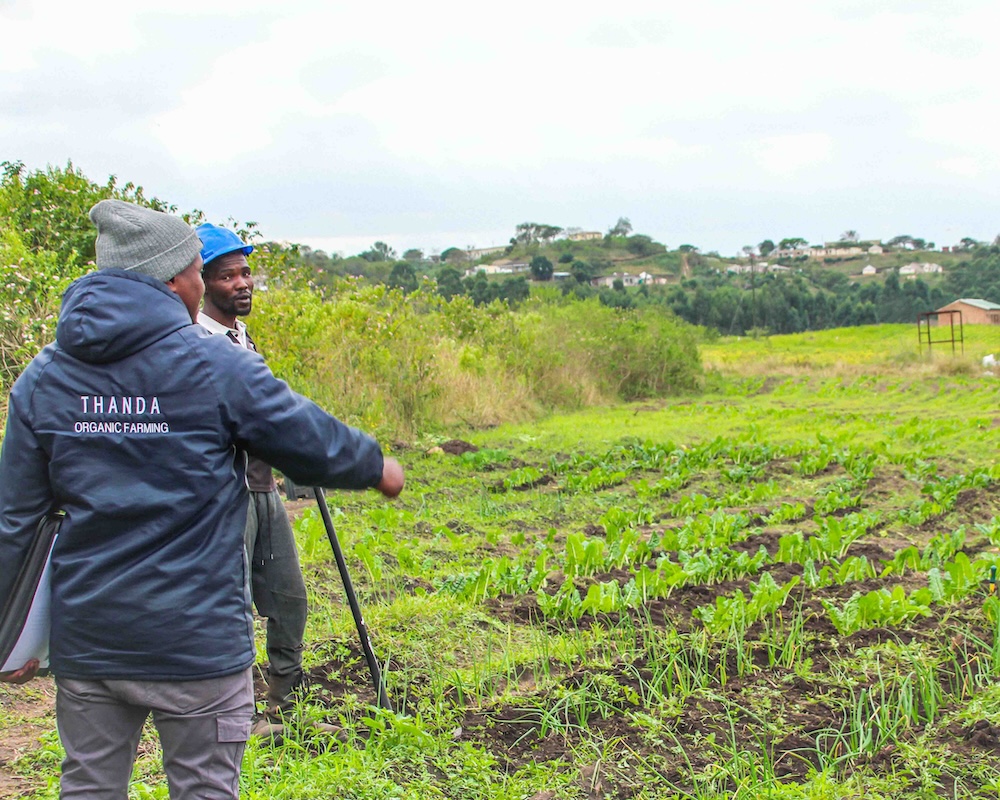
Our rural community is abundant in natural resources. Leveraging farming can solve the area’s unemployment, food insecurity, and nutritional deficiency problems.
Thanda’s Organic Farming Initiative began in 2015 to do just this and today, Thanda’s Organic Farming Initiative aims to sustainably improve household nutrition, strengthen self-reliance, and build a local economy.
We do this using regenerative farming practices through three related programmes:
Household Gardening Programme
Our Household Gardening Programme empowers over 620 local households, primarily those with children in our ECD or Education programmes, to feed their families by cultivating produce in their own backyards.
Nisela Organic Farming Programme
Our Nisela Organic Farming Programme enables over 350 community members to become small-holder farmers and generate an income by cultivating a larger plot of land within communally fenced and irrigated areas.
Thanda Agri-Hub
Central to the success of our Household Gardening and Nisela programmes is the Thanda Agri-Hub, which serves as the foundation for our operations and farmer support. It functions as a vital distribution center for seeds, seedlings, and bio-inputs, while also housing essential tools such as the biodigester, tractor, and hammermill.
Where did it start?
In South Africa, 1 in 4 children suffer from stunting due to malnutrition. By 2013, the food security crisis became impossible to ignore, with availability and affordability posing significant challenges. While our feeding programme had always been essential, we knew broader change was needed. That’s why we launched Nisela—to empower guardians to grow organic vegetables, ensuring their children have access to fresh, nutrient-dense food at home.
Nisela Organic Farming Programme
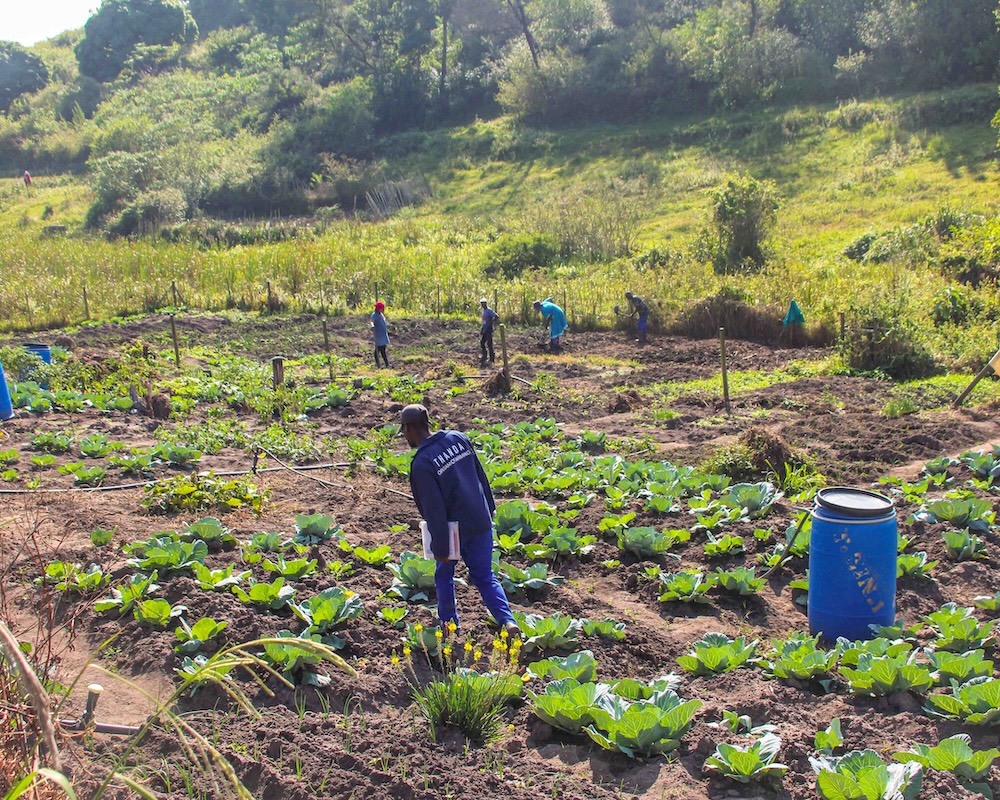
“My escape was my garden at home and plot here at Zizamele. I would talk to my plants, share with them my heaviest burdens. Sometimes I would spend the whole day on my plot and only come back home to rest my feet and spend time with my family. So having this plot has not only helped me feed my family but helped feed my heart. I have found life again through farming, I cannot emphasise that enough.”
Mrs Mnguni
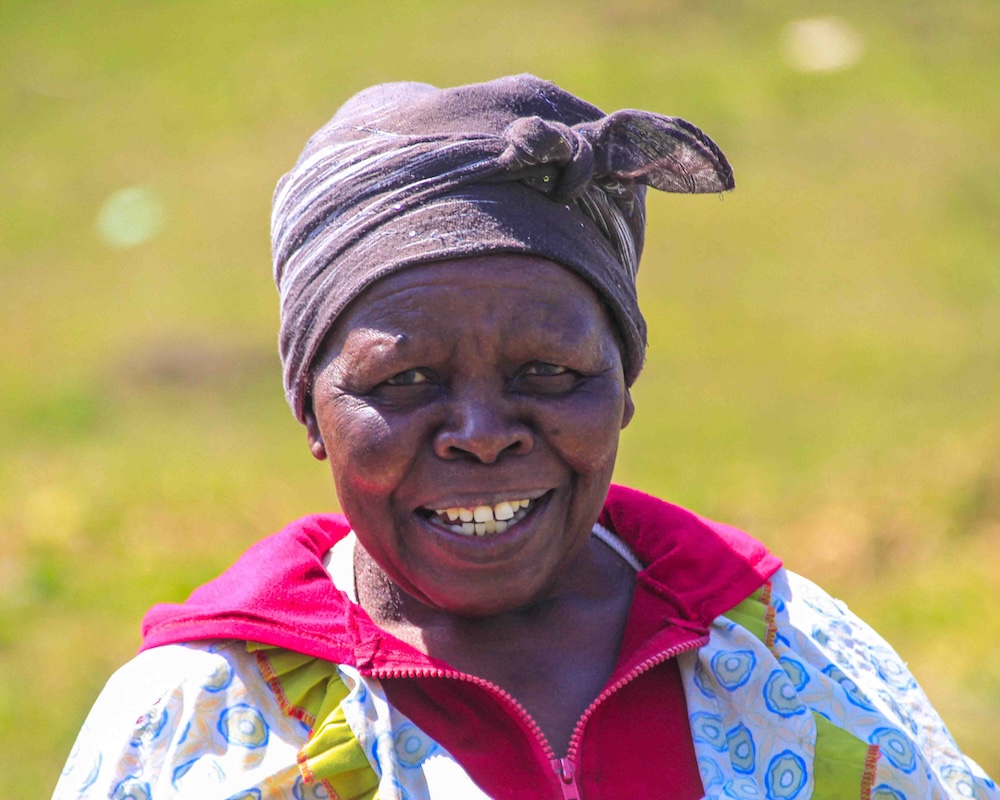
Inputs
Agro-ecological Approach
A holistic and sustainable method of farming that emphasizes the use of natural processes and ecosystems to enhance agricultural productivity. It integrates traditional knowledge with modern science to promote biodiversity, soil health, and ecological balance.
Locally Hired Farming Mentors & Integration of Indigenous Knowledge Systems
Employing local experts who possess traditional agricultural knowledge and skills to mentor and guide farmers. This approach integrates indigenous knowledge systems with modern practices to improve farming outcomes and sustainability.
Individualised Mentoring & Child Care Support
This systems approach reduces barriers to participation, while helping farmers achieve their personal and professional goals. Approximately 41% of Thanda’s Nisela Farms have a Thanda-run Early Childhood Development programme running in the local area, many of which were started under the trees at the Nisela Farm for the farmers children or grandchildren.
Opportunity for Income Generation
Creating avenues for individuals and communities to earn income through farming.
Access to Regenerative Bio-inputs for Soil & Infrastructure Support
Providing farmers with environmentally friendly and sustainable inputs like compost, bio-fertilizers, and bio-pesticides that regenerate soil health. Additionally, Thanda provides infrastructure (primarily fencing and irrigation), which is shared by the farmers at a farm, even though each farmer has their own plot to farm within that. Infrastructure is essential for safeguarding crops from roaming animals and ensuring water availability in dry seasons.
Guaranteed Market Access & Business Skills Training
Thanda’s Agri-Hub is critical to ensuring that farmers have reliable access to markets where they can sell their produce. Farmers also receive training in business skills such as marketing, financial management, and entrepreneurship to enhance their ability to compete and thrive.
Intermediate Outcomes
Sustainable Food Production
Producing food in ways that are environmentally, economically, and socially sustainable. This involves practices that conserve resources, minimise environmental impact, and ensure long-term food security. Beyond the social benefits of engaging in a productive livelihood, an external review from 2016-2023 showed that participants who continue in the programme can expect an average 22% growth in production year on year.
Biodiversity Preservation
Thanda’s farming approach protects and maintains a wide variety of plant and animal species in their natural habitats. This helps sustain ecosystems, supports agriculture, and enhances resilience to environmental changes.
Local Capacity Building & Adaptive Farm Leadership
Farmers skills, knowledge, and abilities increase as a result of holistic training. Farmers learn to adapt to environmental and interpersonal conflicts and manage their farms effectively.
Youth & Women Empowerment
With 80% of Nisela farmers being women, Thanda’s farming programmes are designed to enhance the social and economic strength of young people and women.
Green Economy Growth
In line with South Africa’s NDP, Thanda’s farming programmes promote economic growth that is environmentally sustainable and socially inclusive. This approach ultimately leads to increased income generation, carbon sequestration, and food security, which are also part of the Sustainable Development Goals.
Increased Climate Change Resilience
Farmers learn to design farms that can withstand and adapt to the impacts of climate change using various techniques such as plot design, mulching, press mud, crop diversity, and fire breaks.
Small Business & Entrepreneurship Growth
Encouraging the development and expansion of small businesses and entrepreneurial ventures. This includes providing support, resources, and training to help entrepreneurs succeed and contribute to the local economy.
Thanda’s Nisela Organic Farming Programme nurtures adaptive farms and farmers that contribute to the growth of a thriving, resilient community.
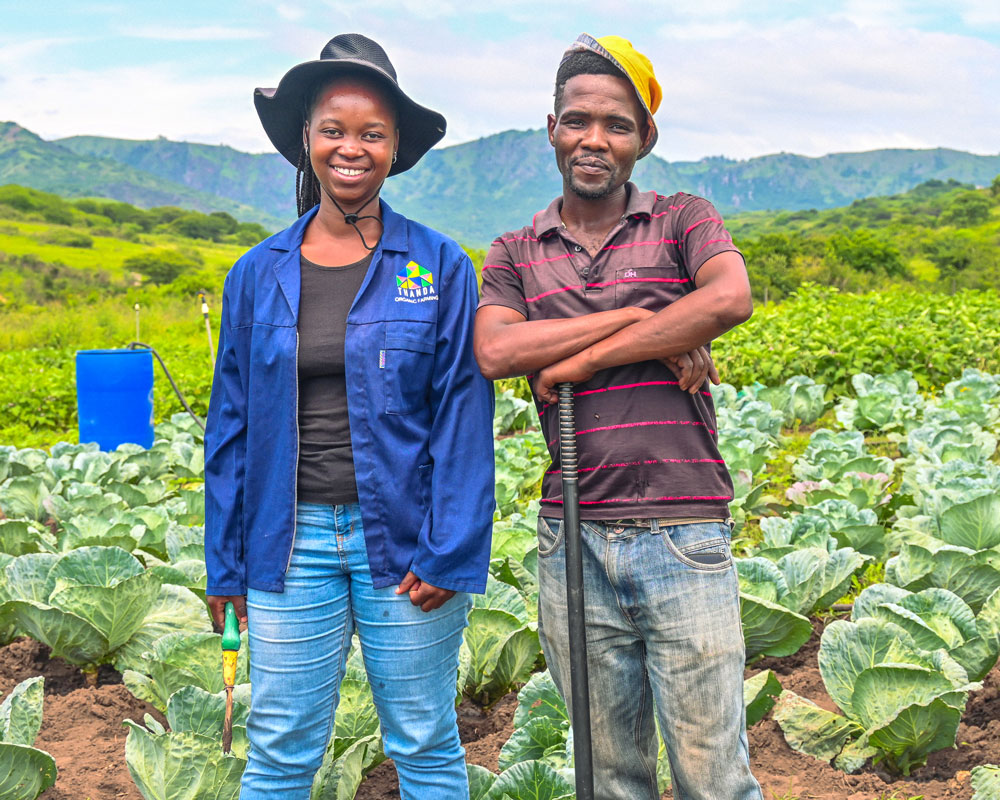
“Myself and the few young people that I have convinced to join Thanda’s Organic Farming Initiative, have had our lives changed for the better! It is no secret that most of our community has limited access to resources and opportunities, and unemployment is at an all-time high. Having this farm, has allowed us to combat that. These young people, including myself, are able to feed our families and even look after ourselves without seeking a handout.”
Mzandile
"We are stressed about a lot of things, children’s school fees, our children are unemployed and the economy is just awful! So having my garden growing food gives me peace of mind that I do not have to worry about how I am going to buy food or where. This garden provides food for my family and my nearby relatives. In total over 30 people! Yes, 30!”
Thokozile
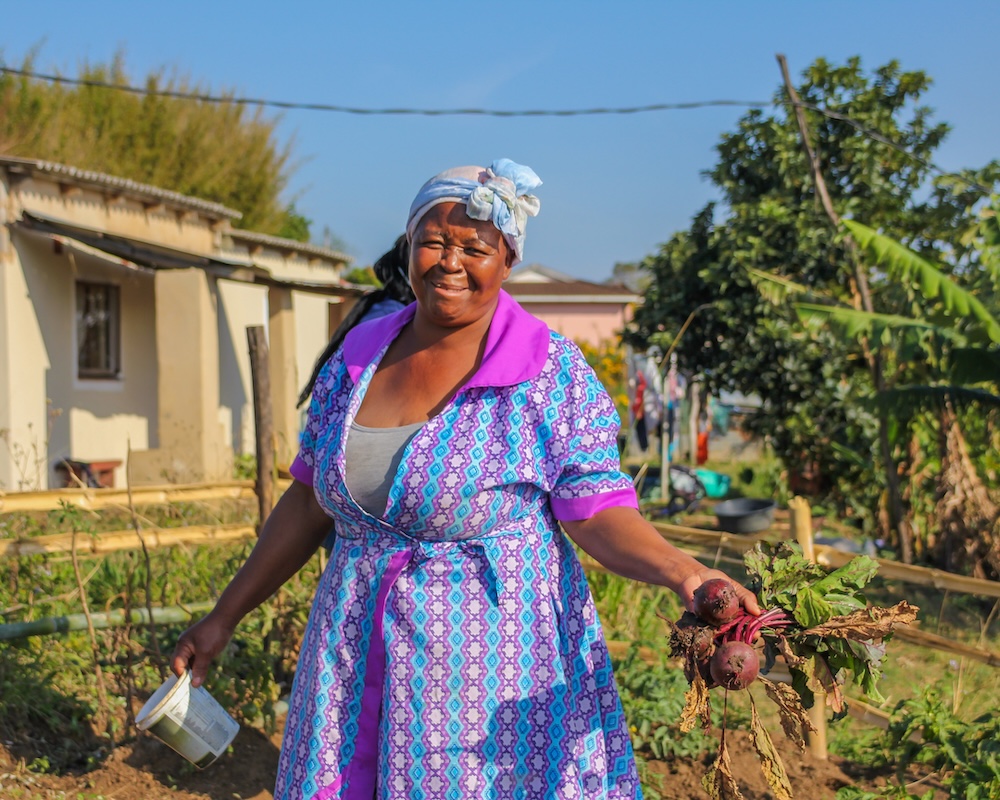
Food insecurity has been a persistent challenge in our community, but in 2020, the crisis intensified. Lockdown led to sudden food shortages, and food parcels offered only a temporary fix. In response, we launched our Household Gardening programme to create a sustainable food security solution.
This program helps families grow their own food in back gardens—a practice lost for generations. Its success lies in simplicity: participants need only a small plot of land and the willingness to cultivate it.
To date, it has enabled households to produce R4.7 million worth of vegetables.
On a
household level
Our mentors visit farmers to impart skills. They learn about organic farming practices and how to make optimal use of their land. Most of the participants have children in our Early Learning or Education Programmes, and these children are benefitting from the nutritious food grown by their guardians. Many people in each household get involved with tending the crops and, in this way, farming knowledge is transferring organically between generations.
On a
neighbourhood level
Our organic farming mentors hold quarterly neighbourhood learning circles where skills are shared directly with farmers through interactive lessons and activities. The camaraderie built in these circles sees strong inter-farmer bonds forming between neighbours, which, per our 3 layered approach, builds resilience and longterm sustainability for the practice of farming for households locally.
Neighbours support neighbours by sharing excess produce or selling locally to keep economic circulation in the neighbourhood.
Free seedlings generate a habit of farming. As children watch their guardians provide food through farming, they internalise and grow a culture of self-reliance.
Local champions emerge who demonstrate that household gardening can provide sustainable food security and a cash income boost.